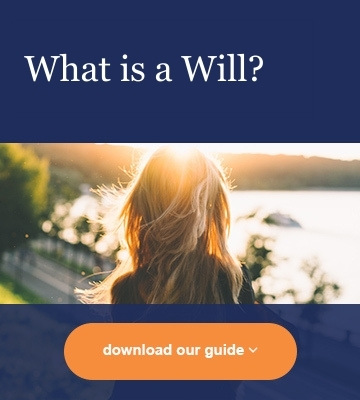
The time when a loved one dies is one of the most difficult in any person’s life. In between grieving and consoling other family members, it feels as if there is an endless amount of administration and organisation to do in order to finalise the affairs of the deceased.
For that reason, here’s a helpful checklist to refer to about the steps you should take when a loved family member passes away.
First priorities
If your loved one is elderly, chances are they will pass away in either a nursing home or a hospital. In this situation, staff at either place will usually handle the immediate formalities, including contacting next-of-kin and advising them on the next steps regarding the body.
In hospitals, the body will usually be kept onsite in the mortuary until you arrange for transferral to a funeral director. In smaller nursing homes and hospitals, you will need to make your arrangements for transfer of the body as soon as possible as they will likely not be able to keep it on site for very long.
When a loved one dies at home, it will depend on the circumstances preceding their death as to what you do next. If it was unexpected, it’s best for whoever discovers the body to call police and an ambulance to ensure the person is deceased. If the person had been ill or it was not unexpected that they have passed away, their GP should be called to come and ascertain the cause of death and write a medical certificate. If they didn’t have a regular GP, again, call the police.
Likewise if there is any thought of suspicious circumstances surrounding the death, call the police, as the coroner may need to become involved.
The need for a death certificate
The doctor’s medical certificate certifying the cause of death mentioned above should not be confused with the official death certificate, which needs to be issued by the Registry of Births, Deaths and Marriages. Often this process will be managed by the funeral director.
A death certificate is needed in order for an executor, trustee or other beneficiary to deal with the deceased person’s estate, including claiming any insurance, superannuation, funeral benefits (if applicable) and to remove money from the person’s bank account if they didn’t have a joint bank account.
The executor or other family members can also use the death certificate to notify other places the deceased had accounts or connections with, such as government departments, banks, telecommunications and utilities providers, local councils, clubs and other memberships. Check the Department of Human Services website for a list of common organisations to contact.
Finding and checking the will
Once those initial things are checked off, it’s important to locate the deceased’s will, if they left one. The deceased may have left directions as to their funeral arrangements as well as important details on the executor of the will and other matters in the event of their death.
If it appears the deceased has not left a will, they might be declared ‘intestate’ and certain state legislation will apply to the distribution of the person’s estate. It’s best to consult a legal professional experienced in wills and estates if this is the case.
Funeral arrangements
Ideally the deceased left fairly specific directions regarding their funeral, including whether they chose a funeral director, had funeral insurance or had purchased a prepaid funeral plan.
In the absence of any of these things, it becomes the responsibility of the executor or, if there is no will, the next of kin, to make funeral arrangements.
Many people will engage a funeral director to take care regarding the administration of most of the points below but if not, some of the things to consider in making these arrangements:
- Did the deceased person have a pre-paid burial plot?
- Did the deceased leave enough funds to pay for the funeral?
- Did the deceased hold any sickness, accident, life, superannuation or private health insurance policies which may provide a payment towards the funeral?
- Was the deceased a returned service person or did they belong to any club, pensioner association or trade union which may entitle them to a funeral benefit?
- Did the deceased have a preference for where to hold the service, which may differ from the burial or memorial site?
The estate
If you are involved in administering the deceased’s estate as executor, there can be a lot to do. Some of the tasks involved include:
- Organising a preliminary conference with family and legal representatives.
- Advising beneficiaries and working out the immediate needs of family.
- Determining the deceased’s assets and debts.
- Obtaining Grant of Probate (if required) and attending to legal formalities.
- Establishing trusts.
- Continuing administration and asset management.
- Calling in and/or transferring assets, obtaining receipts and providing final statements to beneficiaries.
- Distributing the estate to beneficiaries.
The services of an experienced wills and estates lawyer is highly advisable to help streamline the process and make sure proper procedures are followed. Most importantly, they will take the stress and worry out of what can sometimes be a complex and lengthy process.
Other things to check off
Organ donation: If a family member is aware the deceased wished to donate their organs, or had indicated they did on their driver’s licence, it’s important to act quickly as this process needs to happen soon after death. The deceased may have been a registered donor via the Australian Organ Donor Register and authorised medical staff are permitted to check this register for confirmation. Consent is still required, however, so where possible it’s important a person who wishes to donate their organs makes their wishes clear to next-of-kin before their death.
Handling mail: Along with other notifications, be sure to remove the deceased’s name from mailing lists and stop unsolicited mail by registering with the Association for Data-driven Marketing and Advertising (ADMA) for the ‘do not mail’ service.
Social media accounts: increasingly, people who die will leave behind personal digital assets such as a Facebook account, including posts, messages and photos which may only exist on those platforms. Check with the individual platforms as to the best way to deactivate the deceased’s account and see if they offer any options for ‘memorialising’ the account and/or retrieving any assets which no longer exist elsewhere.
Grief management: Be sure to consider your own state of mind in dealing with the issues raised above. Handling the affairs of the deceased can be time consuming and stressful, particularly if you’re the executor of the will. Consider seeing a grief counsellor. Most workplaces will offer bereavement leave, while if you or the deceased received payments from Centrelink, inquire about a possible bereavement payment or allowance.
All of the above points can take a lot of time and effort, even more so while you’re balancing work, family and the grieving process. It can all be made easier by seeking assistance from experienced and understanding legal professionals, such as Delaney & Delaney, who can guide you through all of the steps listed above.
Our integrity and commitment to excellence are demonstrated by the fact we’ve been working in this area since 1915. Contact us today on (07) 3236 2604 or admin@delaneyanddelaney.com.au

